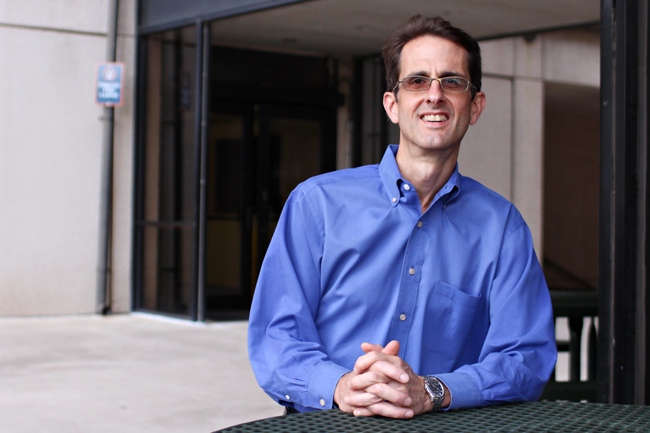The National Institute of Health awarded a $3.3 million grant to professor James Booth to study the neural basis of language impairment in the developing brain.
Booth, who became chair of the Department of Communication Sciences and Disorders in the Moody College of Communication in July, will use brain-imaging technology to better treat children with learning impairments such as dyslexia.
Booth, who holds the John T. Jones, Jr. Centennial Professorship in Communication, said while there are good behavioral measures for determining which children struggle with language impairments versus those who do not, the neuroscience causing those behaviors is not well understood.
“In terms of predicting who’s going to kind of continue to struggle with language in the future, or get better or fall further behind, we don’t really have the tools,” Booth said. “Using kind of neuro-imaging in addition to behavioral measures could be kind of quite helpful for making this prediction.”
The study, which began in September, will follow about 250 children between ages 5 and 9 for five years. It is the largest of its kind and will take place in the Brain Development Laboratory, which came to the Moody College this summer when Booth left Northwestern University.
“The lab existed there and was a pretty big operation, and then part of the lab has moved here,” said Stephanie Herrin, the project coordinator for the lab.
Herrin said that this research project will include both typically developing children and those who have a language impairment.
Margaret Gullick, a postdoctoral fellow in the department, said that language development is a complicated process, involving numerous distinct sub-skills. While researchers know something about the brain areas that language skills rely on, not much is known about the causal relationships between them.
“This research will help us get a better idea of the interactive relationships between these skills and for children who have difficulties with language,” Gullick said. “They’re a very understudied group in general, and, when it comes to brain imaging, we don’t know very much about what might be different about their brains.”
Booth said in a press release that at least 6 percent of U.S. children have developmental language impairments, and those with learning impairments struggle academically, limiting their potential as adults.
“Obviously, it has critical relevance because, if we know who’s going to struggle with language when they’re older, then perhaps we could get them involved in a language intervention program to enhance their language skills,” Booth said.















